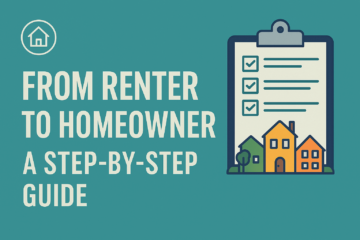Buying a home is one of the biggest financial decisions you’ll ever make, and it’s easy to get caught up in the excitement—especially when you find a house you love. But before you rush into making an offer, it’s important to slow down and make sure you’ve covered all your bases. A little preparation now can save you from headaches (and financial mistakes) down the road.
Here are 10 things every buyer should do before submitting an offer on a home:
1. Get Pre-Approved for a Mortgage
One of the biggest mistakes buyers make is shopping for homes before knowing exactly how much they can afford. Getting pre-approved not only helps you understand your budget but also makes you a stronger buyer in the eyes of sellers. In a competitive market, pre-approved buyers have a clear advantage over those who still need to secure financing.
2. Research the Neighborhood
Loving the home is important, but don’t forget about the neighborhood! Take a walk around the area at different times of the day. Check out commute times, nearby amenities, schools, and crime rates. Even if the home is perfect, you don’t want to end up in a location that doesn’t fit your lifestyle.
3. Check Recent Home Sales in the Area
Before making an offer, look at comparable homes that have recently sold in the neighborhood. If similar homes are selling for less than the asking price, you may have room to negotiate. If they’re selling above asking, you might need to act fast and submit a competitive offer. A real estate agent can help provide this data so you don’t overpay.
4. Look Beyond the Staging
Sellers often invest in staging to make their homes look more appealing, but don’t let the fancy furniture or fresh paint distract you. Focus on the actual condition of the home. Are there cracks in the foundation? Do the windows need replacing? Are there signs of water damage? These issues can be costly to fix.
5. Understand the Home’s True Cost
Your mortgage payment isn’t the only expense to consider. Factor in property taxes, HOA fees, homeowners insurance, and maintenance costs. If the home has an older roof or outdated systems, you may need to budget for future repairs as well.
6. Request a Seller’s Disclosure
Most sellers provide a disclosure statement outlining any known issues with the property, such as previous water damage, structural problems, or major repairs. While not every issue is a dealbreaker, it’s important to know what you’re walking into before making an offer.
7. Find Out About Utility Costs
Ask the seller or the utility company for average monthly bills on electricity, water, and gas. A home may seem affordable at first glance, but high energy costs could add hundreds of dollars to your monthly expenses.
8. Research Future Development Plans
Is a shopping center being built next door? Is a highway expansion planned near the neighborhood? New developments can impact property values, traffic, and noise levels. Check with the local planning department to see what’s in store for the area.
9. Think About Resale Value
Even if this feels like your “forever home,” life changes—job relocations, family growth, or changing needs may lead you to sell in the future. Consider whether the home has features that will make it appealing to future buyers, such as a good location, solid construction, and a functional layout.
10. Hire a Professional Inspector
Once you make an offer, schedule a home inspection ASAP. A professional inspector can uncover hidden problems, from plumbing issues to foundation concerns. If the inspection reveals major problems, you may be able to renegotiate with the seller or even back out of the deal.
Final Thoughts
Making an offer on a home is an exciting step, but taking the time to do your homework can save you from costly mistakes. By following these 10 steps, you’ll be more prepared, more confident, and more likely to make a smart investment.
If you want to contact me:
Call/Text: (615) 881-9975
Email: [email protected]
Lets keep you informed so you can make the best real estate decisions!


